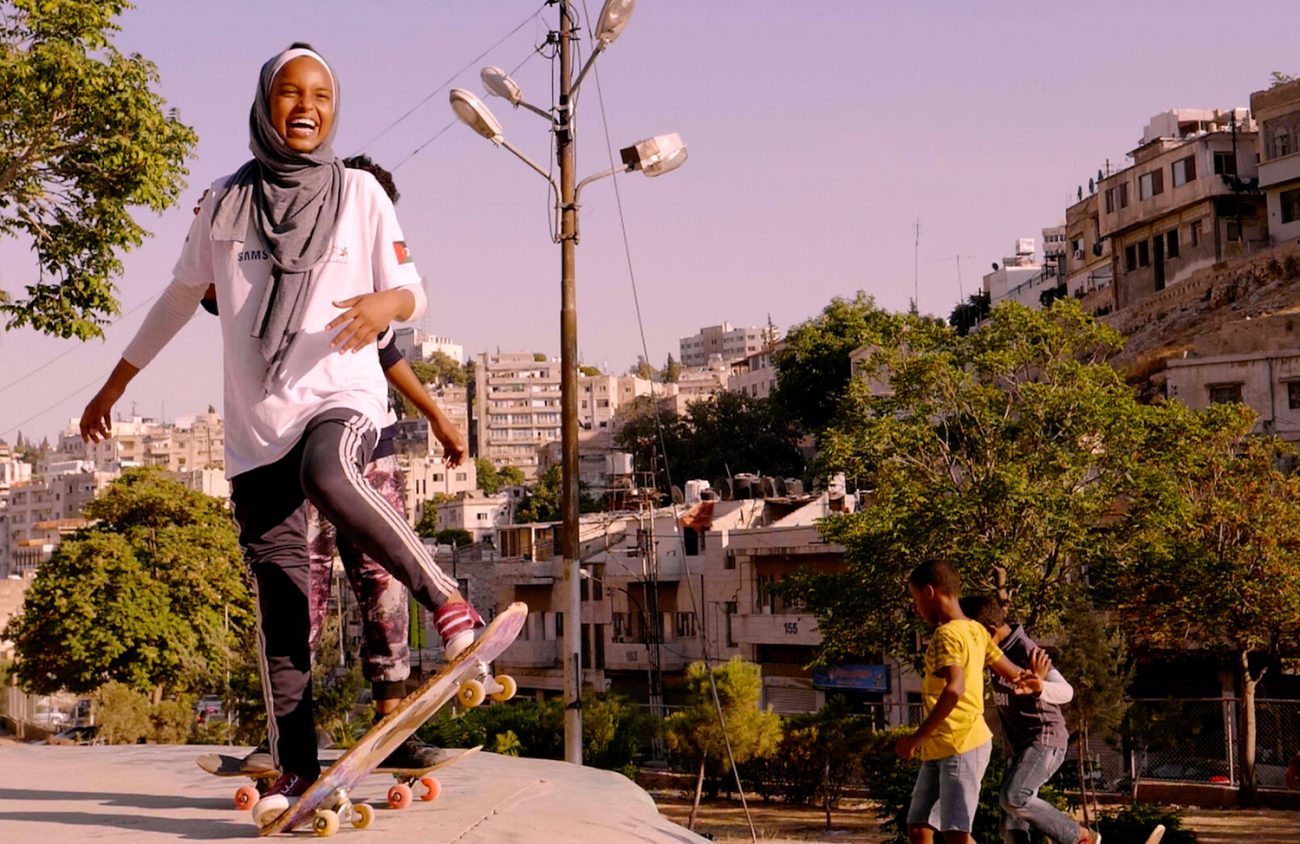Skateboarding has changed a lot since I was trying to land kickflips and running away from security guards in junior high school. The scene is a lot more welcoming today than it was in the early 2000s when other skaters were always trying to out “posers.”
Now streaming on Amazon, Springfield-born and raised Jesse Locke’s documentary 7 Hills captures a unique skateboarding scene in Amman, Jordan, and how that subculture is reinventing space in the city as well as offering refugees relief.
Locke tells Eugene Weekly that back in 2017, while he was filming a documentary in Palestine, he heard about Mohammed Zakaria and his 7Hills Skatepark. He immediately knew he had to make a movie about it.
He crowdfunded the project, and in 2018 he traveled to Amman, Jordan, to shoot the documentary.
Locke says he knew when talking with the co-founder of the skatepark that Zakaria would be one of the sole speakers of the film, informing the viewer about the importance of skateboarding for youth.
“He’s telling the tale of what 7Hills represents, what it means to the kids there and what it means philosophically for people to have fun in a land torn with wars and people fleeing their homes,” he says.
Jordan is home to nearly a million officially recognized refugees, many of whom are from Syria. In the documentary, Zakaria offers insight into skateboarding in Jordan. Skateboarding is a way for some to be free of the refugee category and be just a skateboarder — or have fun with friends in a clean, safe place.
While in Jordan, Locke says he wanted to get deeper into what it’s like to be skating at the park as a refugee. But what he found was that the skatepark is a place for people to have fun.
He says when he was making the film, the idea of refuge didn’t really resonate. “When I got home and started editing and saw their faces, that really resonates now with me,” he says of the joy skaters found there. “What an amazing thing. Out of all this pain to find happiness, that’s profound.”
And what Locke presents in his film isn’t the typical picture of a refugee. Instead, it’s kids with beaming smiles or laughing as they bomb down a slope at the skatepark.
“It was mind blowing in how they were so loveable and still have a smile on their face,” he says.
The 7Hills Skatepark has special times for girls, and Jordanian boys also help teach skateboarding, which helps break some of the cultural barriers associated with cross-gender communication. The group that runs the skatepark also buses in refugees from the Zarqa Camp, the oldest Palestinian camp in the country.
The documentary, which was supposed to have a premiere at Broadway Metro, is more than a cultural snapshot. It also excels in the idiom of skate videos and can share shelf space with other movies like the skate company Birdhouse’s The End and Spike Jones’ Fully Flared.
What Locke captures when he’s out with skateboarders is different from the typical skate video where skateboarders reinvent the banal suburban environment. There aren’t groundbreaking tricks; instead the scenery makes the film stand out — scenes of skaters pulling off tricks in front of mosques, the 2nd-century-built Roman Theater and even a Burger King.
The skaters in Locke’s documentary may be from the other side of the world, in a country vastly different from the U.S., but the skaters are just the same. He says hanging out all day with skateboarders moving to different skate spots throughout the city with no goals or expectations was contrary to what he’s used to: being regimented and goal-oriented.
In other words, skateboarders are all the same, no matter which borders they live within. Then again, that’s the point of the film. Whether it’s ollieing down a flight of stairs, playing a game of SKATE or just learning how to skateboard, all skaters (and people) are more similar than they think. And thank god we can stop the poser inquisition.
7 Hills is available to stream on Amazon Prime; $2.99 to rent, free for members.
